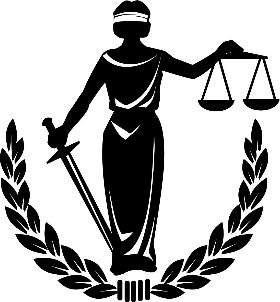The recent landmark judgement delivered by the Court of Justice of the Economic Community of West African States, ECOWAS, on the matter of the violation of the right to freedom from forced evictions, right to peaceful assembly and other related human rights violation which occurred on October 12, 2009 at Bundu Community in Port Harcourt, the Rivers State capital, has offered a ray of hope to victims of human rights abuses, particularly persons who have been forcefully and illegally evicted from their homes and landed property by the government.
The ECOWAS Court ordered the Nigerian government to pay about seventy thousand dollars ($70,000) in damages, for the infringement of the plaintiffs’ fundamental rights in a case bearing Suit Number – ECW/CCJ/APP/10/10 which was filed by some residents of Bundu Community.
A prominent human rights activist, Celestine Akpobari of the Social Development Integrated Centre (Social Action), while commenting on the Bundu judgement, stated that: “This judgement is justice for the people of Bundu Community and it would serve as an inspiration for inhabitants of other waterfront communities who have suffered a similar fate, some of whom have courageously gone before the National Human Rights Commission (NHRC) to seek justice for the human rights infractions they suffered”.
It would be recalled that a coalition of NGOs, amongst which was the Social Action, filed petitions at the NHRC in respect of the illegal demolitions and evictions which took place in some Ogoni communities as well as Abonnema Wharf, Agip (Eagle Island) and Njemanze waterfront communities, and the hearing of the respective petitions which are still pending before the Commission, commenced on May 19, 2014. In Ogoniland, two young men Goteh keenam and John Eenee Dambani were killed by policemen
at Zor Sogho Community, during a peaceful protest to stop the Rivers State government from forcefully stripping Ogoni people of their ancestral land.
Thereafter, over 30 persons have been killed on account of the land-grabbing crisis in Ogoni communities. But the Nigerian Security Operatives failed to investigate the killings. The Rivers State Attorney-General and the Police Command failed to prosecute those who were responsible for the extra-judicial killings of the peaceful and unarmed protesters. Similarly, in the waterfront communities of Abonnema, Njemanze and Agip, the Rivers State government failed to intervene to prevent the
infringement of the people’s constitutionally-guaranteed rights, and to protect lives and property. It also failed to investigate and prosecute those liable for the reckless destruction of houses, mass forced evictions and extra-judicial killings.
We believe that the right to housing is sacrosanct and the provision of adequate shelter for the people is the primary responsibility of the government. The right to housing is recognised in some regional and international human rights instruments to which Nigeria is a signatory, such as the Universal Declaration of Human Rights, the International Covenant on Economic, Social and Cultural Rights, and the African Charter on Human and People’s Rights.
We therefore call on the Rivers state government to take a cue from the Bundu judgement by rebuilding the demolished communities or in the alternative, by paying full compensation to all affected individuals in those communities to enable them rebuild their houses in ‘productive’ areas where they voluntarily choose to resettle.
We also urge the federal government to align its security practices with international human rights standards. No law or conventional practice in Nigeria should give the armed security agents in the country, the power to brutally eject unarmed Nigerians from their homes as this contravenes international best practices.
We hail the courage of the Bundu residents who kept hope alive and resiliently approached the ECOWAS Court to seek justice, and we know that this landmark judgement of the court, would for a long time, serve as a symbolic judicial precedent for the actualisation of justice in matters of housing rights violation, not only in Nigeria but in the entire West Africa.
For further enquiries, please contact Social Action on: [email protected], [email protected]

